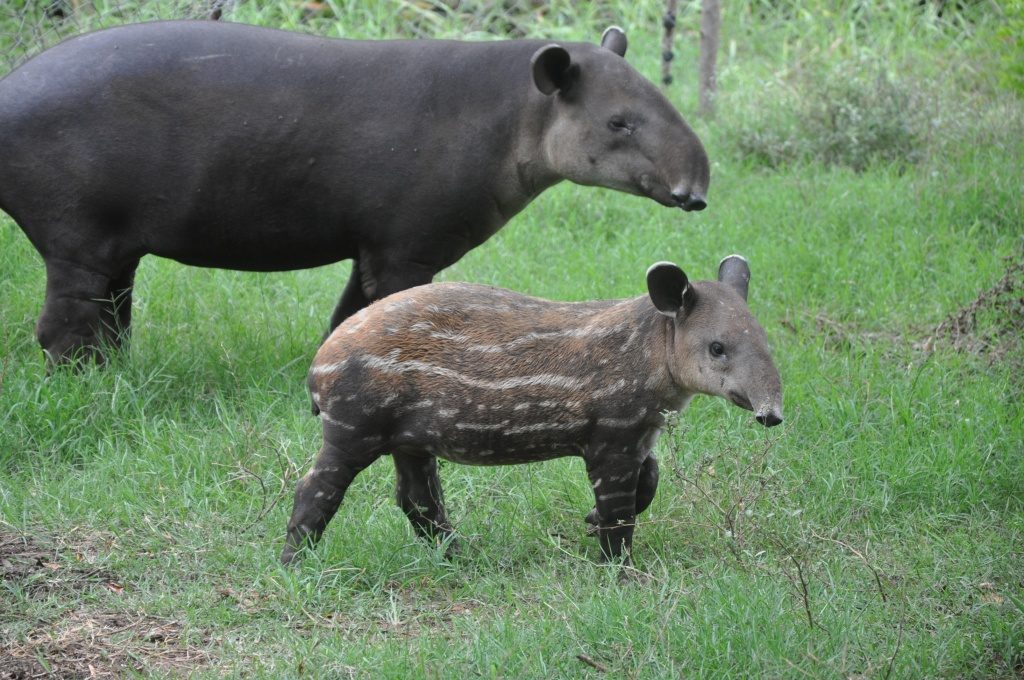Global Wildlife Conservation (GWC) changed its name to Re:wild in 2021
Chris Jordan is GWC’s Nicaragua programs director. His current research focuses on Baird’s tapir (Tapirus bairdii) and jaguar (Panthera onca) spatial ecology, occupancy and conservation along the Caribbean coast of Nicaragua. We sat down with him to talk more about his work—and what he loves most about his job protecting species.
Q: What’s your favorite part of field work? Why?
A: My favorite part of fieldwork is exploring new field sites with local people and discovering natural features of the landscape together. We all experience the same emotions when we come across unknown waterfalls, cliffs, huge wild almond trees, or excellent habitat for rare and elusive species. This experience of uncovering the hidden treasures of our large, remote, forested field sites never grows old.

Q: What species do you primarily work on? Why are you passionate about their conservation?
A. I primarily work with Baird’s tapirs (Tapirus bairdii). I am passionate about their conservation for many reasons, but the two most important to me are:
1) I simply love the species and cannot imagine living in a world without tapirs. I have spent so much time around tapirs in captivity (I once lived with a baby tapir in the forest for 40 days), walking around wild tapir habitat, and working to think like a tapir in order to capture them for our GPS telemetry project that they have become a part of my identity. Losing them in the wild would feel like losing an important part of myself.
2) The tapir research and conservation community is one of the greatest academic communities I have ever had the pleasure of working with. I have never felt unwelcome in a group of tapir researchers, and have been astonished at how willing they are to share data, work together on analysis, and share credit for new discoveries. Most of my best friends, closest collaborators, and professional role models are all tapir researchers. This group of tapir colleagues inspires me to continue developing our work with this species and training the tapir conservationists and researchers of tomorrow.

Q: What’s the most rewarding part of your work? Why?
A. The three main indigenous communities where I work are located within the Indio-Maíz Biological Reserve and have been there for centuries, since before the reserve itself existed. The community members pride themselves on the fact that their conservation ethic is what allowed for the establishment of Indio Maíz. Nonetheless, the community members have been concerned for a few decades now about the environmental threats facing them, and have long reported the invasion of colonists and illegal deforestation to authorities without avail. Since GWC worked to create forest rangers in their communities and began tirelessly working to convince the authorities to address those environmental threats reported by our rangers, the community people are starting to see a light at the end of the tunnel; many feel that they finally have a reliable way to report illegal deforestation and poaching, and are becoming increasingly hopeful that together with the local, territorial, and national authorities, they will be able to halt the destruction of their reserve and thus preserve their culture and traditions. It is extremely rewarding to see the reaction of these local people to our work. Even those who have no direct economic benefit from our forest ranger program are extremely happy with the results of our project and support both us and the forest rangers. Conservation is part of these local people’s identity just as it is a part of my identity, and this gives me more resolve to expand and improve our work in Nicaragua so that we are making a large-scale, systematic difference in a country that currently has one of the highest rates of deforestation globally.
Q. How is your work helping make the world a better place?
A. Our work is creating long-term conservation solutions for indigenous people who deserve them and for species that need them in a globally important country for biodiversity.

 BACK TO NEWS
BACK TO NEWS